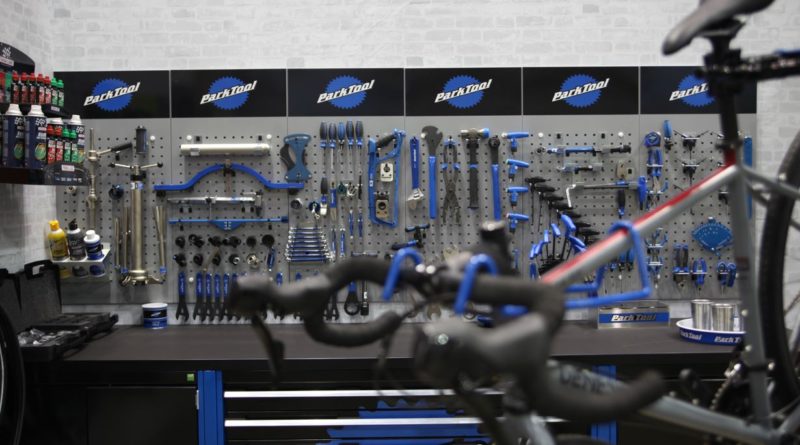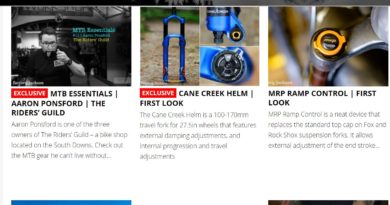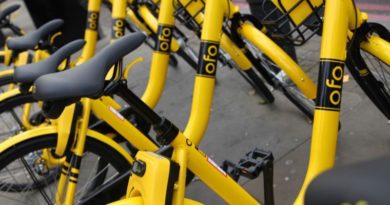Opinion: How peak time charges could enhance workshop profitability
The bicycle trade might be missing out on a significant revenue opportunity and this winter may be just the time to find out if that’s the case. John Styles explores the subject of workshop pricing…
There is an old industry adage that the consumer “just won’t pay a high price for servicing a bicycle”. But as an Economist I’m trained to ask, “what if?”. And as a frequent visitor to bike stores, I’m inclined to ask, “why not”?
The “what if” that I’ve observed is: what if workshops charged according to time? Not the time it takes to do the job – but the time by which the consumer wants the job done. I’m talking about the sort of price-to-time relationship that hotels, airlines, and cinemas routinely employ. Off peak pricing, peak pricing, on-demand pricing.
TIME SENSITIVE PRICING
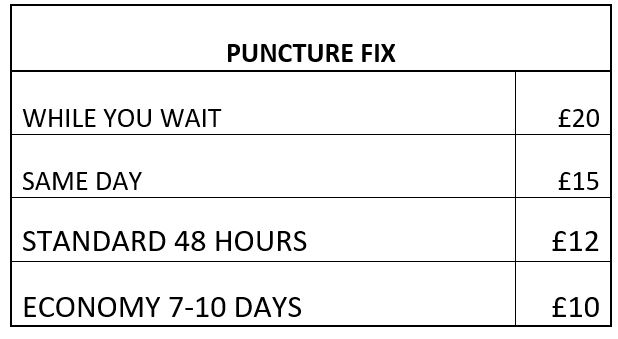 If you want to pre-book a flight three months ahead for an off-peak time of year, and an off-peak time of day, your flight might cost £100. But if you want that same flight at the best time of day, peak season, and at short notice it might be £500 or more.
If you want to pre-book a flight three months ahead for an off-peak time of year, and an off-peak time of day, your flight might cost £100. But if you want that same flight at the best time of day, peak season, and at short notice it might be £500 or more.
Now the bicycle industry experiences the same sorts of seasonal peaks and troughs as the holiday industry. We are super busy in the warm summer months and super quiet in the dark winter. In addition, we are busier at the weekends and quieter during the week. And like a cinema, plane or hotel, your workshop is a fixed asset. One that needs to be utilised to its full potential to achieve a return.
I have observed a handful stores offering winter service sales, boosting their off-peak revenue by enticing consumers with “Gold for the price of Silver” offers, for example. I do wonder if that’s enough and could we go further? Could we offer higher or lower prices every day, according to how quickly workshops can do the work?
THE MORAL DILEMMA
I’ve visited over 600 stores in seven different countries, and very rarely have I seen any sort of time-sensitive pricing. A quick google search for “express bicycle service” or “same day bicycle service”, or similar will leave you feeling thoroughly under-whelmed, I promise.
Most stores list tremendous amounts of detail about what service jobs they can do, how they do them, who will do them and what they will cost. But precious little about when it can be done. Book your bike in and we will tell you is about the crux of it. For many consumers, the second part (when and how quickly) may be more important. When I discussed this with store owners and asked why this is the case, I heard two big moral objections (and only a few practical/logistical objections).
- It’s not fair to charge some consumers more than other consumers. (Really? If some consumers can and will pay more to have something done quickly, why deny them the opportunity?)
- It’s not fair for richer customers to jump the queue over poorer customers, everyone needs their bike. (Really? Whilst this is altruistic it may not necessarily be commercial.)
This “moral reluctance” to charge a higher price during peak months or peak times was clearly on display throughout the 2020 lockdown boom. Service queues just got longer. I didn’t observe any stores exploiting the high level of demand to ask for a higher labour price from their consumer base. I did observe plenty of consumers leaving in dis-appointment, because they couldn’t get their bikes fixed on the timescale they wanted.
It might be good business sense not to “price gouge” in order to keep those consumers loyal longer term. Yet is it good business sense to turn away the consumer who really wants or needs a “right now quick fix”? So, is there a way to charge more, without betraying one’s core values?
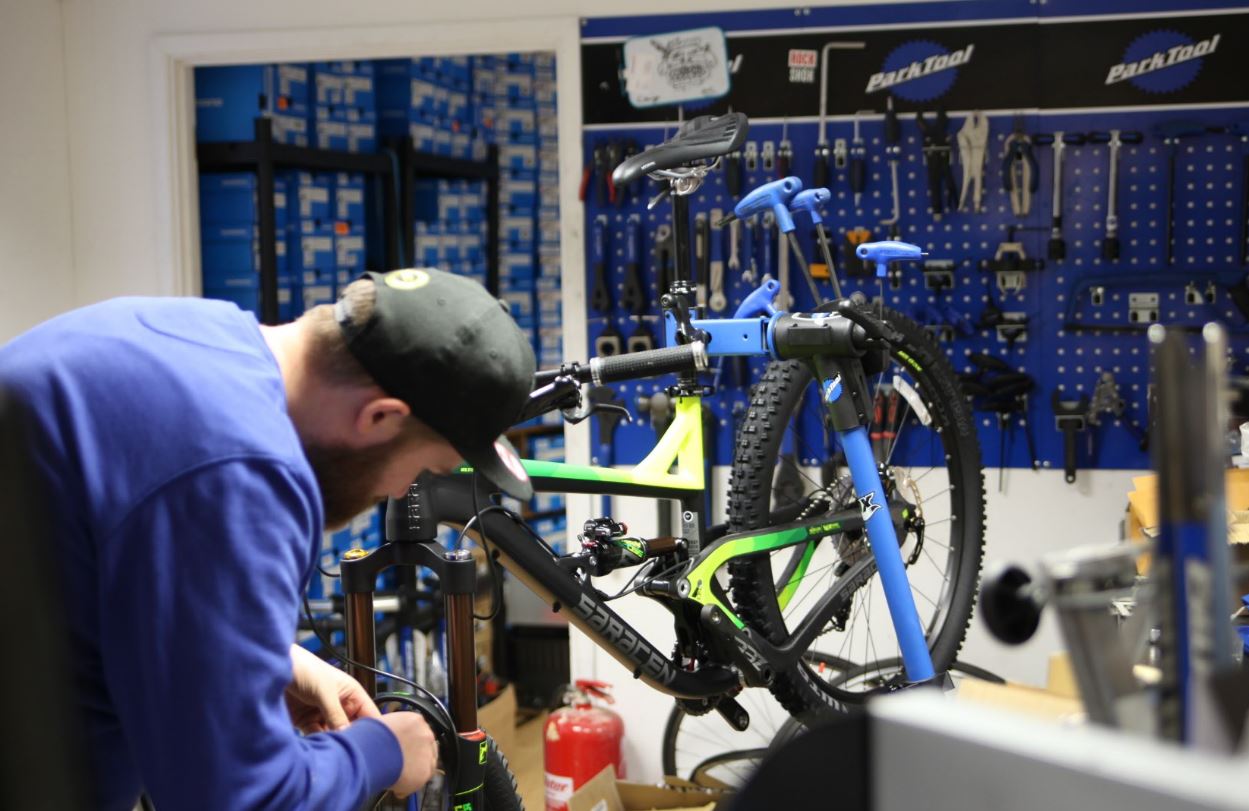 THE CURRENT BUSINESS MODEL HAS NOT CHANGED FOR DECADES
THE CURRENT BUSINESS MODEL HAS NOT CHANGED FOR DECADES
Right now, it seems like 99% of the industry operates the same charging model. We have three main servicing prices; Gold, Silver, Bronze. We also have a queue, often a large one. In the winter that might be a few days, or a week. In the summer it could be 6 to 8 weeks long. No matter who you are, the answer is always the same: Join the Queue.
* But I need that bike to commute every day: Sorry, Join the queue
* But I need that bike for a birthday present: Sorry, Join the queue
* But I need that bike for a trip this weekend: Sorry, Join the queue
However, what also happens is that despite the one size fits all, join the queue mantra, stores queue jump people on a selective basis. Particularly those loyal regular customers who have a race on the weekend, or those the store judge to be most in need. There’s nothing wrong with this practice and in many ways, it highlights the best in human nature and the industry’s down to earth helpful approach.
But is it necessarily commercial? Could we achieve higher workshop rates with another structure?
TIME OPTIMISED CHARGING
What if we charged according to the consumers’ need for a timely repair? At its most basic level take the puncture fix. For example, you could try charging like this:
In this way the consumer who values and needs that repair more can choose to pay a higher price. And the consumer who doesn’t need their bike so urgently can choose to pay a lower price. This could allow the store to achieve a higher average workshop price, charging according to consumer demand. It might also allow the flow of work to be more regulated, with those who are prepared to wait, choosing to wait.
On a practical day-to-day level, I suspect it would be relatively simple to try this out. Your workshop could offer one priority slot per day, possibly on demand, or possibly pre-booked via your website, phone or social media. If no one takes the slot, the workshop won’t be idle, it simply picks up the next job. But by setting consumers’ expectations and giving them a choice, we may find that some of them are prepared to pay more. And if a small experiment with puncture pricing proves successful, why not go further and try something like this on bigger workshop jobs?

With a “time-tiered” pricing structure in place, stores could still choose to offer that express slot at a lower price to people they judge to be worthy or in need. For example, an essential worker, a courier or a food delivery rider. But at least they would know you have an express slot and that (in and of itself) may draw in more consumers. Whether you actually charge for it is up to you.
An important point: The “Economy” service is ambiguous and really is whatever you want to make it. If you have plenty of storage, it could mean “leave your bike with us for a week”. If you don’t have much storage, it could mean “bring it back in a week and we will do it then”. Either way, you are rewarding the consumer who is prepared to wait with a lower price. Thus retaining more business, and securing a longer tail of pre-booked jobs.
COLLECTION AND DELIVERY
There are two further services that could work well alongside time-sensitive pricing. And help you achieve a higher average ticket price. The first one is collection and delivery, and I have heard of many more stores including this as a service in the area. So, there isn’t much more to say on that, other than, it could combine well with providing an express slot. The time poor consumer who needs a bike fixed ASAP may also value collection and delivery.
BIKE VALET
The second is a bike valet service. No mechanic likes to work on a dirty bike, but many stores seem reluctant to charge a consumer for cleaning the bike before repairs are carried out. Although degreasing and cleaning a drive train is common in most workshop pricing structures, I know very few stores who publicise an “everyday” bike cleaning service. If you consider the busy consumer, they might accept a £10 to £30 charge for pre-cleaning the bike prior to service. You may also find that some consumers will purchase this item in isolation. After all, people pay £10 to £30 to have their cars cleaned, so why not bikes?
COULD YOU DOUBLE SOME WORKSHOP TICKETS, OR MORE?
To take an extreme example, imagine the busy city exec who has a top-end race bike that needs servicing for a weekend race. Currently, that bike might come into your store and be charged (say) £50 for a Bronze service – if you have the time. But on an express Bronze slot, you might be charging £75, plus cleaning £25, plus collection and delivery £25. That’s £125. You more than doubled your ticket price. At the same time, your cash rich, time poor, demanding, wealthy consumer is happier and more likely to use you again. Of course, not every consumer will increase their spend that much, but you only need a proportion to significantly increase your workshop takings.
SUMMARY
Thinking as an economist, I hope time-sensitive pricing could be a way to manage demand better and/or generate more revenue per ticket. Longer-term, this could be a win for the mechanic who would really like to be paid on a par with auto mechanics. Likewise, it’s a win for the store owner who, presented with seasonal demand, simply extends his hours to 12 hours a day or six days a week. Thinking as a bike trade rep, I just want to know, is this just theory, or could it actually work? Could this be a quick and easy win for any store, especially to help with winter cash flow?
So, if you’re interested in trialling something like this in your store, or indeed already tried it, we’d love to hear from you. Write back to CIN here if you want to share your experiences with other stores.
John Styles has a back catalogue of similar ideas which he has put down in words here on CI.N. To trawl those, see here.
